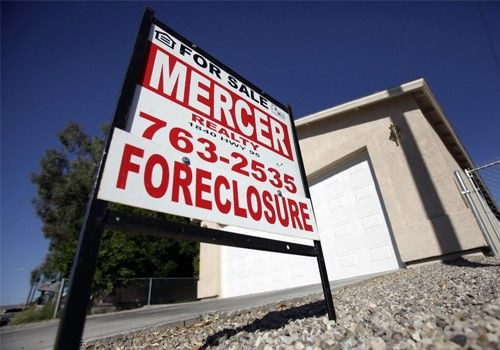Why is the housing market crashing and burning?

The latest S&P/Case-Shiller index readings continue to confirm that the US housing market is crashing and burning.
The Composite-20 index, which tracks housing prices in 20 US metropolitan areas, just fell to 141.20 for March 2011. That’s down 3.6 percent from March 2010 and 4.3 percent from the June 2010 high made on the first attempt at recovery after the initial 32-percent housing plunge. It’s also less than 1 point away from the recession low made in May 2009.
The housing market is sick for many reasons.
Shadow Inventory
CoreLogic puts the shadow inventory at 1.8 million units. Shadow inventory is defined as distressed and foreclosed homes that have not gone on the market yet.
It keeps overall housing prices down because these units are liquidated at fire-sale prices.
Declining Prices
Falling prices itself leads to even lower prices.
Investors are discouraged to buy because no one wants to own a depreciating investment. It also puts more mortgages underwater, which initiates a self-reinforcing cycle of more defaults and fire sales, which leads to even more underwater mortgages.
Corelogic estimates that 23 percent of all US mortgages are currently underwater.
Lending Standards
Even qualified buyers are having trouble getting mortgages.
There are several reasons for the tight lending standards. Lenders are scarred by the housing bust, regulation is stricter, securitization remains weak, investors aren’t so eager to buy mortgage securities, and sometimes the appraisal value is below the selling price.
Poor Jobs Market
The US jobs market remains poor with the unemployment rate stuck at 8.7 percent.
The inability of millions of people to find jobs, the fear of losing one’s job, and the fear of not finding another job once one loses a job all incentivize people to rent instead of buy.
Solutions?
Not likely.
The one thing the US government does well – which is controlling mortgage rates – hasn’t worked so far.
What would work is the renegotiation of the mortgages with homeowners on the cusp of default. A better jobs market would also help tremendously.
However, the US government – or anyone else, for that matter – doesn’t really have a realistic chance making those things happen. The housing market, therefore, will probably have to slug it out and perhaps fall for a few more months.
© Copyright IBTimes 2024. All rights reserved.





















